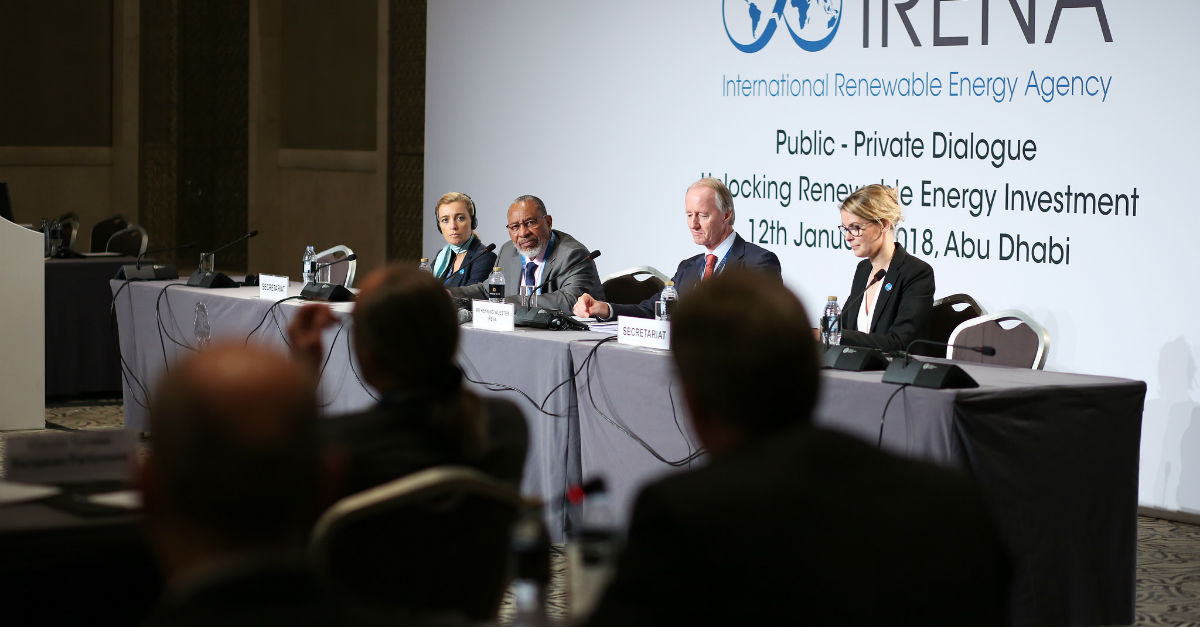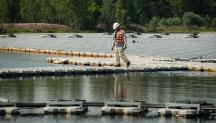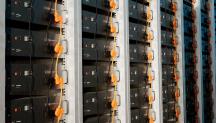

When Nothing Else Makes Sense, Renewables Do
Newsletter
Public-Private Dialogue at IRENA's 8th Assembly highlights what governments and businesses can do to unlock investment in renewable energy
"We find ourselves in a time when scaling-up renewable energy investment makes sense, even when not much of anything else makes sense," Steve Sawyer, Secretary General of the Global Wind Energy Council told a ballroom filled with ministers, diplomats, parliamentarians and other leaders from public and private sector at IRENA's 8th Assembly on 13 January 2018.
Reporting to IRENA's decision making body from the Public-Private Dialogue, Sawyer's statement rang true in that in a world of fake-news and fast changing circumstances, for more than a decade a renewable energy has been an increasingly reliable and affordable investment.
Globally, annual renewable energy investment rose to almost USD 265 billion last year — outpacing that in conventional sources of electricity. However, current investment levels in renewable energy are far from what is needed to meet the ambitions of the Paris Agreement, and IRENA analysis has shown that to meet that climate goal, annual investment levels need to roughly triple from current levels and be consistent every year from now up to 2050. It is expected that 85% of the total investment will have to come from private finance with approximately two-thirds of funds mobilised in emerging renewable energy markets.
While plummeting renewable energy costs and genuine interest in switching to renewables from the private sector are making this global goal more achievable, access to financing and scaling-up investment remains a major challenge.
Aligning forces
Seeking to promote the wider and faster uptake of renewable energy technologies, in January 2014 IRENA and 35 leading players in renewable energy from around the world established a Coalition for Action. Today, the swelling Coalition of 75 members including private companies, industry associations, research institutes and civil society, gathered in a Private-Public Dialogue at IRENA’s 8th Assembly, to engage with participants of IRENA’s Legislators Forum and government representatives, in a discussion that highlighted key opportunities and challenges in growing renewable energy markets worldwide, and the need for better alignment between government, legislators and industry.
Coinciding with the Dialogue and Assembly, and feeding into their discussions, the Coalition launched two white papers: one on the scaling up of investment in emerging markets, identifying the challenges and opportunities for unlocking investment in renewable energy; and another on community energy and the broadening of renewable energy ownership.

During the Dialogue, there was a broad consensus that a lack of bankable renewable projects in the marketplace (compounded by political and market barriers), not capital, was failing to attract investment for a scale-up of renewable energy investment necessary to meet the Paris Agreement targets and the Sustainable Development Goals.
To help address this challenge, the group had these take-home messages for the Assembly and its participants:
- Political will, clear targets and a long-term policy framework that ensures a broad and just participation in the energy transformation, are crucial to successfully scale up investment.
- Public finance institutions need to move away from direct financing to focus on risk mitigation including off-taker guarantees and currency risk hedging mechanisms, which in turn is critical to reduce financial costs.
- Standardized contract templates are an important tool to reducing transactions and in allowing for the aggregation of projects to create larger financial deals.
- Non-discriminatory market access is needed, allowing for both private and community based investors to engage effectively in the energy transition.
- The importance of maximizing socio-economic benefits at all levels, especially the local community level including local job creation.
- Support long-term and effective carbon pricing and the removal of existing fossil fuel subsidies.




